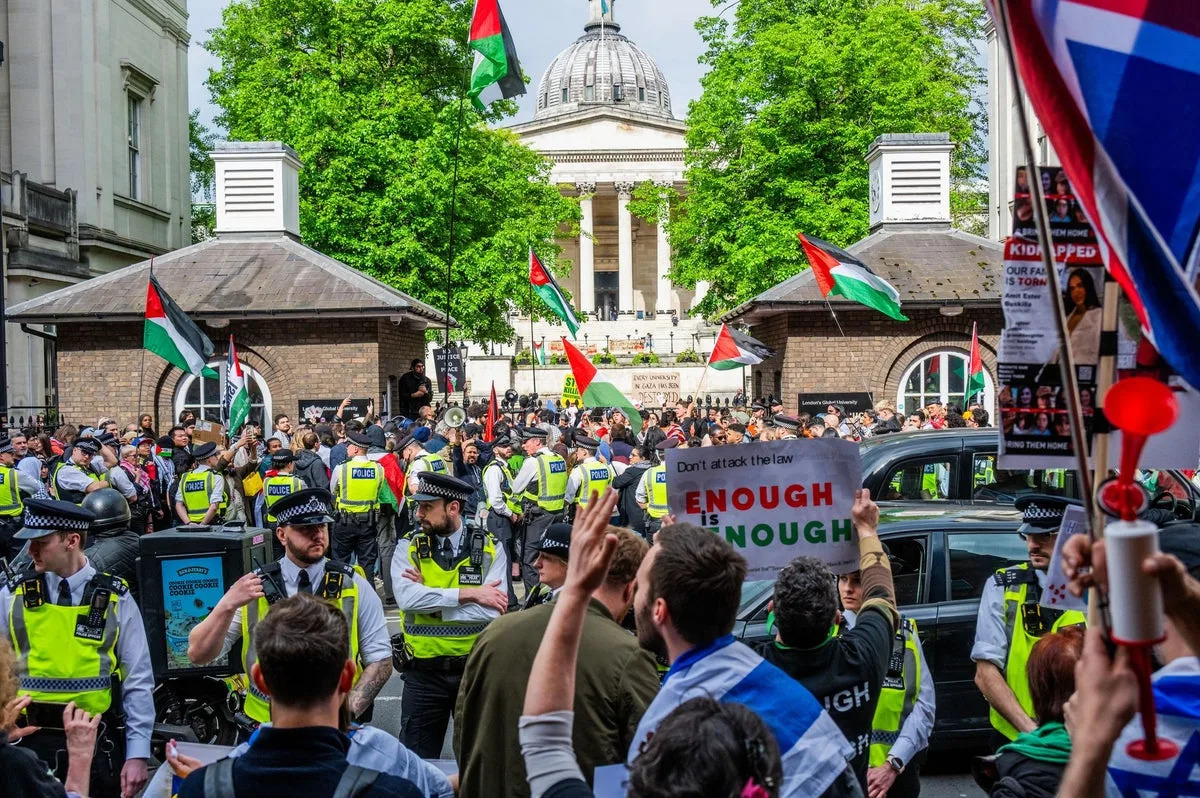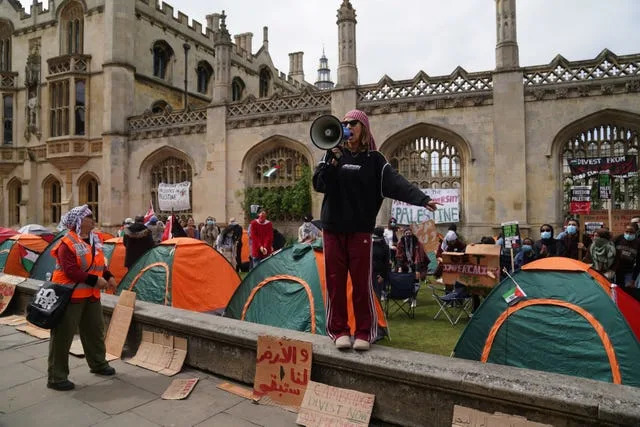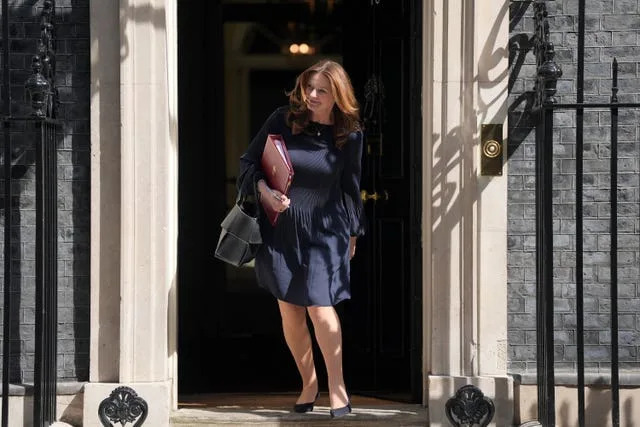UK
University protests & the importance of dialogue: The Standard podcast
Mark Blunden and Rachelle Abbott
Thu, May 9, 2024

ONE TIME USE ONLY - (Guy Bell/Shutterstock)
Protest tents are popping up at London universities following student encampments in the US, set up in opposition to Israel over its war against Hamas in Gaza.
But there are concerns the flashpoint violence witnessed at academic institutions including UCLA and Columbia, could spread to Britain.
Pro-Palestinian tent protests have been established by students at more than a dozen universities across the UK, including Cambridge and Oxford, as well as Goldsmith’s, UCL and SOAS in London.
It comes as Education Secretary Gillian Keegan joins the Prime Minister in urging vice-chancellors to “crack down” on anti-Semitic abuse on campuses and create “a safe environment for all students”.
Whether you see these protests as pro-Palestine or anti-Israel, there doesn’t currently appear to be much measured discussion on this ever-divisive topic - or, is entirely that true?
On this edition we’ll speak with a London charity that aims to bridge the chasm, through dialogue, listening, understanding and critical thinking - including inviting young Israeli and Palestinian speakers to speak with and help educate 14 to 18 year olds.
The Standard podcast is joined by Sharon Booth, CEO of Camden-based Solutions Not Sides, founded in 2010, who says they’re busier than ever with demand from schools across the capital, and she explains the objective of their work.
Listen above, or wherever you find your podcasts.
Education Secretary fears university campuses could become ‘unsafe’ like in US
Eleanor Busby, PA Education Correspondent
Thu, May 9, 2024
There is a “fear” that university campuses in the UK will become unsafe spaces for students and staff like in the US, the Education Secretary has said.
Student encampments have been set up at more than a dozen universities in the UK against the war in Gaza, including Cambridge and Oxford.
Tensions have continued to ratchet up in standoffs with pro-Palestine protesters at US university campuses- and thousands of demonstrators have been arrested since the protests began in America last month.

Students speaking at an encampment on the grounds of Cambridge University, protesting against the war in Gaza (Joe Giddens/PA)
Prime Minister Rishi Sunak conducted a meeting in the state dining room of No 10 on Thursday morning with vice-chancellors from leading UK universities to discuss antisemitism on campuses and protecting Jewish students.
Education Secretary Gillian Keegan said vice-chancellors need to show leadership in response to protests against the war in Gaza.
Speaking ahead of the roundtable, Ms Keegan told Sky News: “What we don’t want is our campuses becoming unsafe environments for students or staff and going down the route that you see in other places like the US.”
When asked whether there is a fear that events in the US will be replicated in the UK, Ms Keegan said: “There’s always a fear of that.
“There is always a contagion fear and obviously there are some groups that are encouraging this as well.”
The Education Secretary told the broadcaster that there are “rumours” that people in the US are talking to student groups in the UK.
She said the Government was “most concerned” about antisemitic abuse due to “the nature of those protests and some of the things we have seen.”
Ms Keegan called on universities in the UK to be “respectful and safe places” for all students.
Her comments came after more than 100 pro-Palestine protesters gathered outside the Cambridge Union on Wednesday evening to protest a talk by billionaire tech entrepreneur Peter Thiel, founder of company Palantir.
In 2023, 182 university-related antisemitic incidents were recorded by the Jewish charity, the Community Security Trust (CST), compared with 60 incidents in 2022 – a rise of 203%.
Speaking ahead of the meeting at Downing Street, Ms Keegan told LBC that she has heard directly from Jewish students who feel intimidated on campus.
She added: “What we need to do is show real leadership and we need to de-escalate the situation.”

Education Secretary Gillian Keegan leaves No 10 Downing Street following a meeting to discuss efforts to tackle antisemitism on campus and protect Jewish students (Yui Mok/PA)
Asked whether she thinks Mr Sunak is clear on the difference between antisemitism and legitimate protest against Israeli army action, Ms Keegan told Times Radio: “It’s not straightforward in every case.”
She added: “The reality is you have to look at those situations and what is targeted, what is inciting hatred or is actually moving into harassment.
“And you know, those lines are lines that we need to be clear about.”
Representatives from the Union of Jewish Students (UJS) and the CST also attended the meeting on Thursday morning alongside vice-chancellors.
Ahead of the meeting, Mr Sunak warned of “students and academic staff being targeted, threatened, and assaulted simply for being Jewish”.
Writing for The Times, he said: “We will always protect freedom of speech and the right to protest — and our universities are a natural place for that expression, precisely because they are institutions of learning and exploration where challenging ideas are debated rigorously.
“But just as importantly, universities have a profound duty to remain bastions of tolerance, where such debate takes place with respect for others — and where every student feels safe and at home, whatever their faith or background.”
Mark Gardner, chief executive of the CST, said: “Everyone has the right to protest, but they do not have the right to disrupt other students’ learning, harass and threaten Jewish students, or spread hatred of Israel with calls for ‘resistance’ and other extremist language.
“University authorities need to set out clear boundaries for the timing, location and content of these protests and ensure there are consequences for anyone who breaks them.”
A spokesman for the UJS said: “Universities must act decisively to combat hate on campus. UJS stands ready to work with all stakeholders to tackle this urgent issue.”
No comments:
Post a Comment